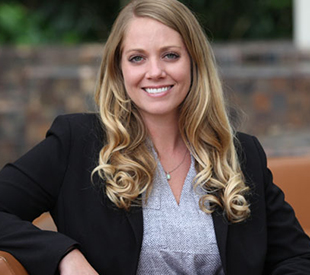Blog
3 min read
Smart Business: Construction Contract... Originally published in July 2024 Smart Business. A prevailing party clause is a contractual provision that...
Blog
September 26, 2019 • 4 min read
 Ohio local hiring laws affecting contractors are destroyed, for now.
Ohio local hiring laws affecting contractors are destroyed, for now.
Municipalities will no longer be able to force local hiring upon contractors for various jobs. This especially impacts large cities and their citizens with the ambition to work in construction. The winners are contractors who want to bid on all public work throughout the state on a level playing field and not be forced to hire certain workers or pay fines.
THE RULING: On September 24, 2019, the Supreme Court of Ohio ruled that the State of Ohio legislature prevails over Cleveland’s Fannie Lewis law. In the majority opinion, Justice Kennedy leaned on Article II, Section 34 of the Ohio Constitution which grants the Ohio General Assembly broad authority to legislate the welfare of the working people of Ohio. Justice Kennedy asserted that the Ohio legislature “…exercised that authority in enacting R.C. 9.75, which protects all employees engaged in the construction trades from public-improvement contracts that impose conditions on employment favoring a public authority’s own residents to the detriment of other construction workers in the state. Because every resident of a political subdivision is affected by the residency restrictions imposed by another political subdivision, the statute (R.C. 9.75) provides for the comfort and general welfare of all Ohio construction employees and therefore supersedes conflicting local ordinances.”
THE BACKGROUND: In 2003, the City of Cleveland passed the “Fannie Lewis Law.” The Fannie Lewis Law is an ordinance requiring that 20% of all hours worked by employees from the state of Ohio on a $100,000+ public construction project in the City must be completed by residents of the City of Cleveland. If a contractor fails to meet this quota, they are charged a fine. The City passed this law because, after much study and review, it believed its residents were not receiving adequate opportunities on local construction projects. Other cities throughout the state have passed similar requirements, with some requiring residency quotas as high as 50%. Here is the rub: Ohio Revised Code Section 9.75, which was passed in May of 2016, bars public authorities from requiring workers on public projects to reside in the geographic area of the project. Thus, the City of Cleveland sued the State of Ohio over this Revised Code Section one week before its effective date.
CITY OF CLEVELAND. The City of Cleveland argued that its authority to make public improvements is included within the powers of local self-government guaranteed by the constitution and R.C. 9.75 directly infringes on that right. The City also argued that construction employees already have the choice to live where they please, so no fundamental right is being infringed by enforcing the residency quotas. Instead, the City argued that the law provides much needed jobs to City residents who are trained and willing to work, but who are otherwise not being offered employment on these types of projects. The City has also provided data that purports to show that the ordinance has had a positive impact on the City’s work force. The City took the stance that R.C. 9.75 is not a general law of the State and, as such, it infringes on the City’s home-rule power. Lastly, the City argued that the Supreme Court should affirm the lower courts because R.C. 9.75 does not arise pursuant to the State’s employee-welfare powers and does not provide for the comfort, health, safety and general welfare of all employees engaged in construction work. Obviously, the court by a 4-3 margin disagreed.
IMPACT: Local hiring laws in Ohio are destroyed, for now. Municipalities will no longer be able to force local hiring upon contractors for various jobs. This especially impacts large cities and their citizens with the ambition to work in construction. The winners are contractors who want to bid on all public work throughout the state on a level playing field and not be forced to hire certain workers or pay fines.
The question remaining, is R.C. 9.75 being used as a tool for discrimination? We expect new local laws and additional state and federal constitutional challenges.
J ohn Swansinger is the author and founder of YouDig and is a partner in Buckingham, Doolittle & Burrough, LLC‘s real estate and construction practice group. He works with contractors, developers and construction owners on construction law issues including construction contracts, commercial agreements, construction litigation, subcontractor issues, insurance liability, breach of contract and more. He can be reached at [email protected] or 216.615.7356.
ohn Swansinger is the author and founder of YouDig and is a partner in Buckingham, Doolittle & Burrough, LLC‘s real estate and construction practice group. He works with contractors, developers and construction owners on construction law issues including construction contracts, commercial agreements, construction litigation, subcontractor issues, insurance liability, breach of contract and more. He can be reached at [email protected] or 216.615.7356.
YouDig is an online resource that connects the construction community with vital issues affecting the industry and is a component of the business law firm Buckingham, Doolittle & Burroughs, LLC that is specifically geared toward construction.
 Tara J. Rose is an associate Real Estate & Construction practice group. She practices in the Cleveland office of Buckingham Doolittle & Burroughs, LLC. Tara assists clients ranging from small to mid-size, middle market business owners and executives with land use, zoning, construction contract disputes, eminent domain, real property tax and real estate transaction matters. She can be reached at [email protected] or 216.615.7318.
Tara J. Rose is an associate Real Estate & Construction practice group. She practices in the Cleveland office of Buckingham Doolittle & Burroughs, LLC. Tara assists clients ranging from small to mid-size, middle market business owners and executives with land use, zoning, construction contract disputes, eminent domain, real property tax and real estate transaction matters. She can be reached at [email protected] or 216.615.7318.
Buckingham is a corporate law firm that counsels Middle Market executives and business leaders all over Ohio and beyond. With offices in Canton, Akron, and Cleveland, Buckingham offers clients Business Law Reimagined through sophisticated and practical legal services. Serving the region for over 100 years with nearly 70 attorneys, Buckingham’s mission is to deliver meaningful experiences through the practice of law, exceed expectations in terms of service, counsel and business sense, and to offer continuous value to the industries, communities and clients they serve. See all of our news and updates by visiting our website.
Our attorneys will provide a collaborative, thoughtful approach to your legal needs. We look forward to connecting with you.